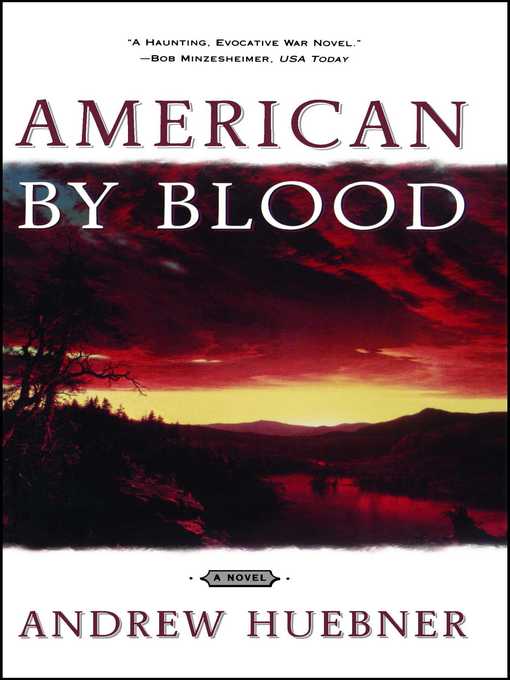
American by Blood
A Novel
کتاب های مرتبط
- اطلاعات
- نقد و بررسی
- دیدگاه کاربران
نقد و بررسی

February 28, 2000
One of the biggest mistakes an aspiring writer can make is to become grossly enamored of a well-established literary figure. Huebner's first novel shows a clear admiration of the sometimes quirky but highly recognizable style of Cormac McCarthy and thereby undermines what could have been a marvelous, horrific tale of vengeance and pathos in the aftermath of the Little Bighorn Massacre. At the opening, James Bradley--documented as the first officer to discover the ravages of Custer's Seventh Cavalry--rides onto the bloody battlefield accompanied by two privates, William Gentle and August Huebner, the author's great-great- grandfather. The men report the result of Custer's strategic blunder, then continue to try to track down the hostile Sioux and Cheyenne and ultimately the Nez Perce, as the Indians fight a running, retreating series of battles across the mountains and prairies of Montana and South Dakota, trying to escape to Canada. The soldiers form a triumvirate point of view, with Bradley as the voice of duty, Huebner the voice of reason and Gentle (the soldier credited ultimately with the murder of Crazy Horse) the voice of mystical frontier pragmatism. Punctuated with beautiful descriptive passages of wilderness flora and fauna, the novel graphically details the skirmishes that followed the military disaster on the Greasy Grass, revealing with rare candor the inner thoughts of American troopers involved in a deadly struggle with a desperate foe. Unfortunately, Huebner's decision to eschew conventional punctuation, his verbal anachronisms and a few outright historical errors (the Comanche were not at Little Bighorn) render the story difficult to follow. Huebner clearly has McCarthy's rhythms down, but unlike the older writer, Huebner doesn't quite get the melody right. And that's a pity, for he certainly has an original and potentially inspiring lyric in mind. Agent, Simon Green. Foreign rights sold in U.K. and Germany.

November 15, 1999
Huebner backtracked to write his first novel, drawing on family legend proclaiming that his great-great-grandfather arrived at the Little Bighorn the day after the battle. Here, three U.S. army scouts get vengeful when they see what has happened to Custer's luckless troops. Rights have been sold to England and Germany.
Copyright 1999 Library Journal, LLC Used with permission.

Starred review from January 1, 2000
This is a simple story simply told and simply devastating. It is the story of American soldiers, many born somewhere else, who arrived at the Little Bighorn a day late for the battle. Instead, they had to deal with the puddles of blood, pockets of smoke, bodies and body parts left afield, and the insects and animals feasting on them. They also had to deal with an overall stench terrible enough to make seasoned troopers turn in their saddles, wipe away tears, and retch. Huebner's characters are all real, including his own great-great-grandfather, August, killed in one of the lesser battles that followed Sitting Bull's slaughter of Custer's army. Key characters also include James Bradley, who was first to discover the massacre, and a humble man named William Gentle who killed Crazy Horse. The author has opted to omit quotation marks and favors short paragraphs and very short sentences. The resulting style makes for some of the purist prose ever found in a historical novel, and it intensifies the drama in the process. Huebner does for the Little Bighorn what Thomas Wolfe, in his short story "Chickamauga," did for the carnage at that bloodiest of Civil War battles--and that takes some doing. ((Reviewed January 1 & 15, 2000))(Reprinted with permission of Booklist, copyright 2000, American Library Association.)

























دیدگاه کاربران